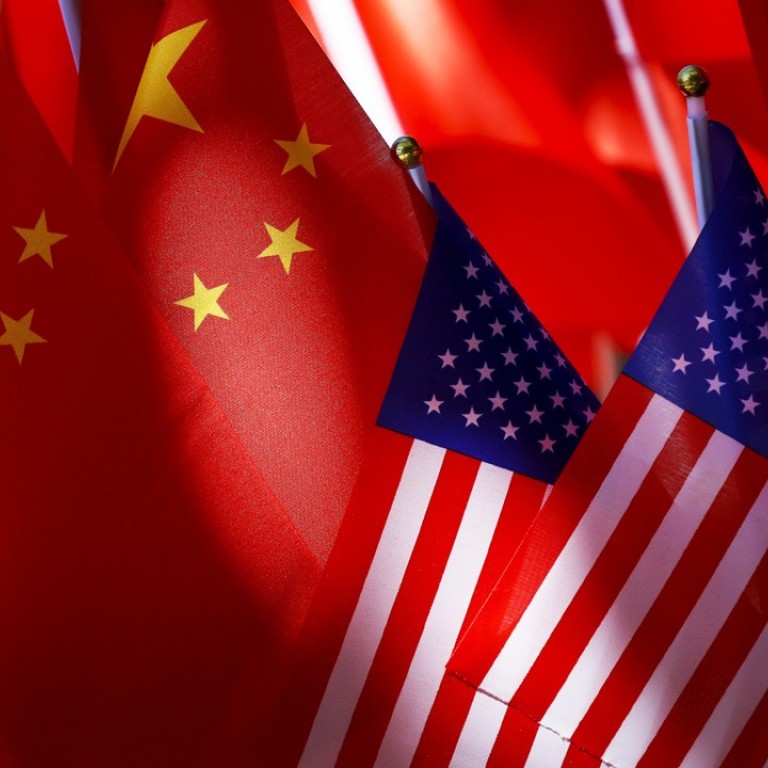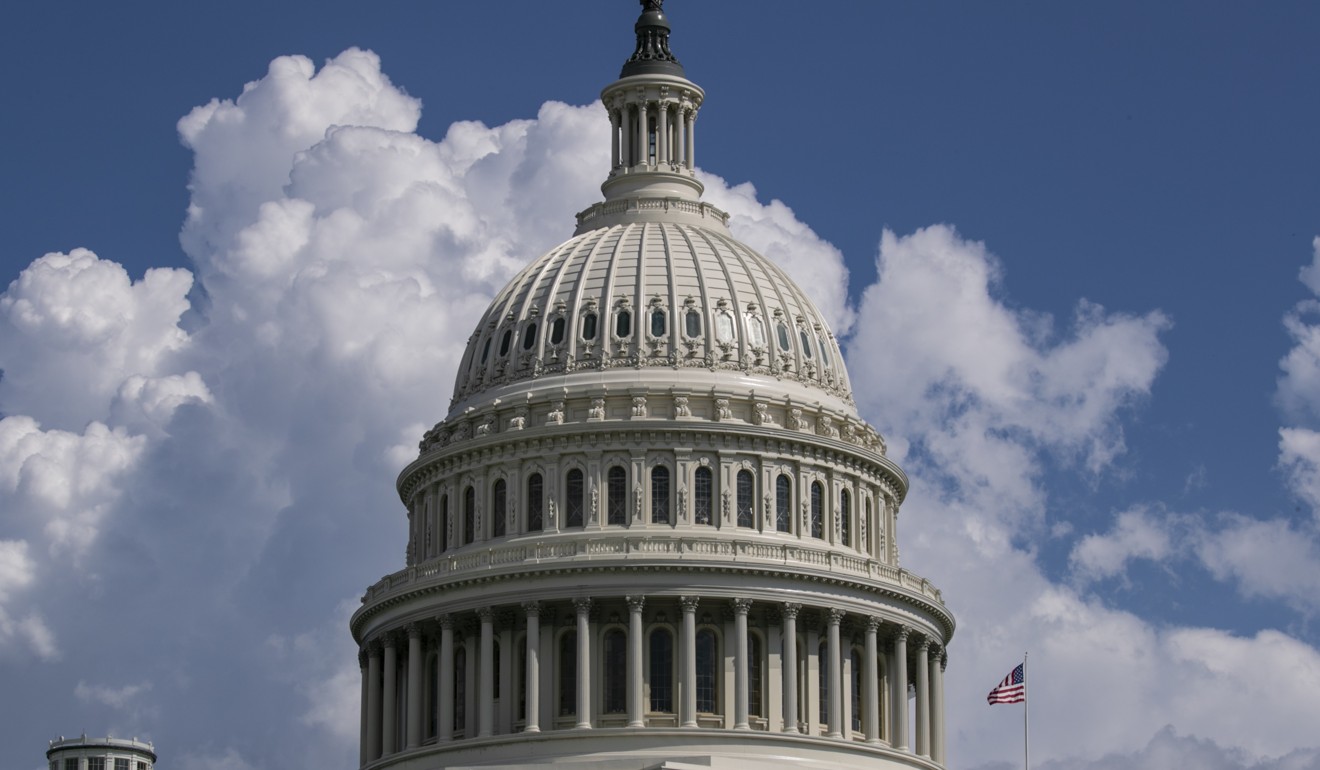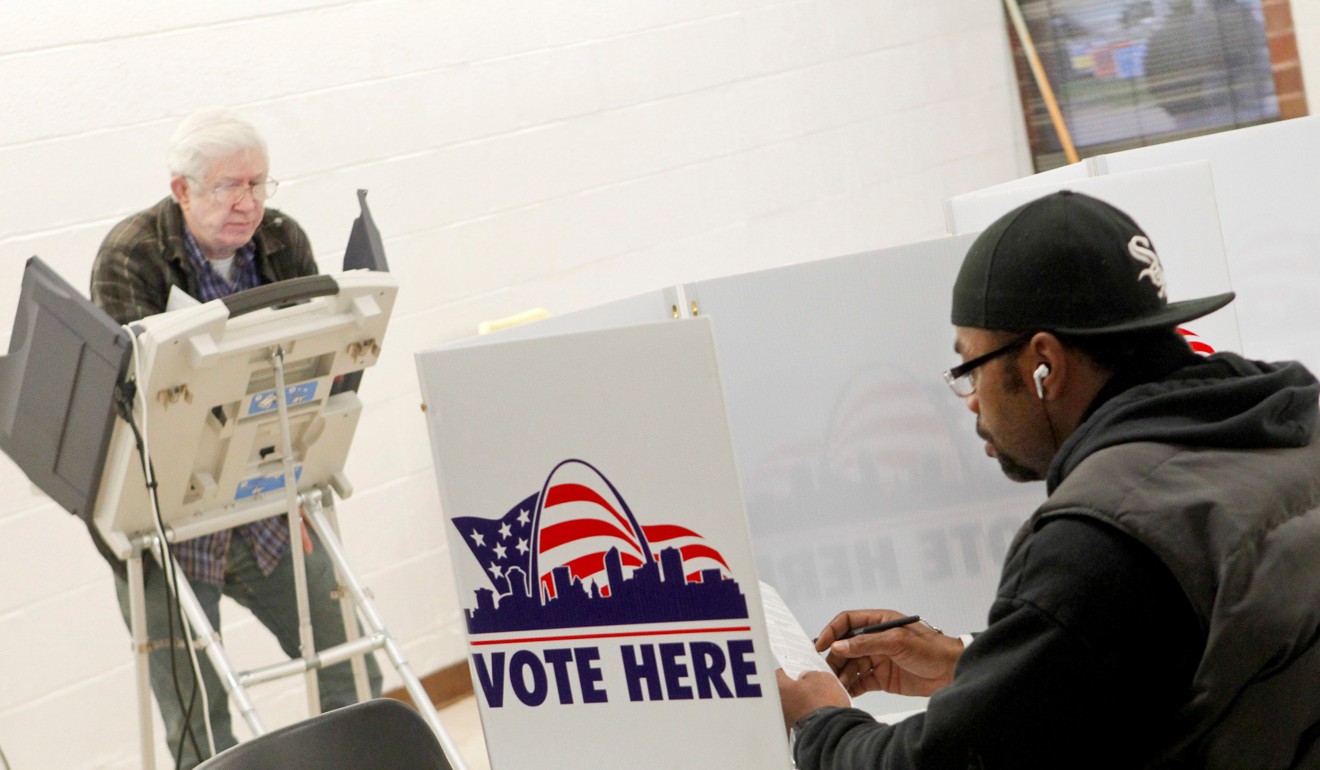
Will the US change its China policy if the Democrats win the midterms or is that wishful thinking from Beijing?
- Chinese government warned to prepare for ‘worst case scenario’ as trade war continues
- Beijing warned there is a ‘bipartisan consensus’ in Washington in favour of tough stance
The US is unlikely to see a shift in its China policy even if the Democrats win next month’s midterm elections, diplomatic observers have said, warning Beijing against “wishful thinking” on the issue.
Zhao Quansheng, director of the Centre for Asian Studies at American University in Washington, told an event in Beijing that there was a “bipartisan consensus” in Washington in favour of a hard line against China.
“The likelihood of a change in China policy is very limited,” he told Thursday’s forum on US-China relations.
The US will hold the midterm elections on November 6. Democrats and Republicans will contest all 435 seats in the House of Representatives and 35 of the 100 seats in the Senate.
Polls suggest the Republicans face a tough fight to hold both houses, especially the House of Representatives.
Although Congress has limited influence over foreign policy, which is primarily a matter for the White House, it can still influence policy by passing bills that the president must decide whether to sign or veto.
The current Congress has this year called for sanctions against Chinese officials responsible for the so-called “re-education” camps targeting Uygurs and other Muslim groups in Xinjiang and passed the Taiwan Travel Act, which allows American officials to meet their counterparts from the self-ruled island.
US-China trade war: Trump gets his (USMCA) clause out in Asia
Observers also predicted that the Democrats were likely to support US businesses that want action to curb what they see as unfair Chinese trade practices, such as the alleged theft of intellectual property and forced technology transfers.
The current mood in Washington is seen as increasing the chances that a Democrat-controlled Congress is likely to keep up the pressure for a tough line against China.
“Even if Trump loses in the midterms, the sentiments he has fanned in Washington will persist,” said a Chinese government adviser speaking on condition of anonymity.
“There has been a huge gap in perceptions as to how each side views the other. It is crucial to precisely interpret the messages from the US.”

Tensions between the US and China have spilled over from the trade war into a number of other strategic areas.
The US disinvited China from a multinational Pacific Rim military drill earlier this year in response to what it said was China’s increasing militarisation of the disputed South China, and it has since increased the number of warships it sends to patrol the area.
Washington has also stepped up its efforts to contain China’s growing economic influence by launching its own infrastructure spending plans as a counterweight to Beijing’s Belt and Road Initiative.
Taiwan’s cosying up to Trump could spark a US-China war
Zhao cited Beijing’s disappointment and anger over the Taiwan Travel Act, which was passed unanimously by the House of Representatives in February, as one indicator that Beijing should not expect too much change from a Democrat congress.
“China should avoid wishful thinking, and face up to and be prepared for the worst case scenario”, he said.
Washington and Beijing are currently engaged in a tit-for-tat trade war, slapping punitive tariffs of up to 25 per cent on each other’s goods, with Donald Trump threatening further measures.
The Chinese economy has already started to show signs of strain and the country’s industrial association has started asking businesses for feedback on the impact of the tariffs.

Zhao said there was room for China to compromise on trade, but it should stand firm on Taiwan, which Beijing views as a breakaway province that must eventually be reunited with the mainland, by force if necessary.
“The Chinese government has to be clear where it can compromise and where it cannot give in,” he said.
Zhao argued that China should reduce its reliance on US products, saying the ban on supplying chips to the telecoms giant ZTE, as a punishment for breaking UN sanctions on Iran, should serve as a wake-up call.

